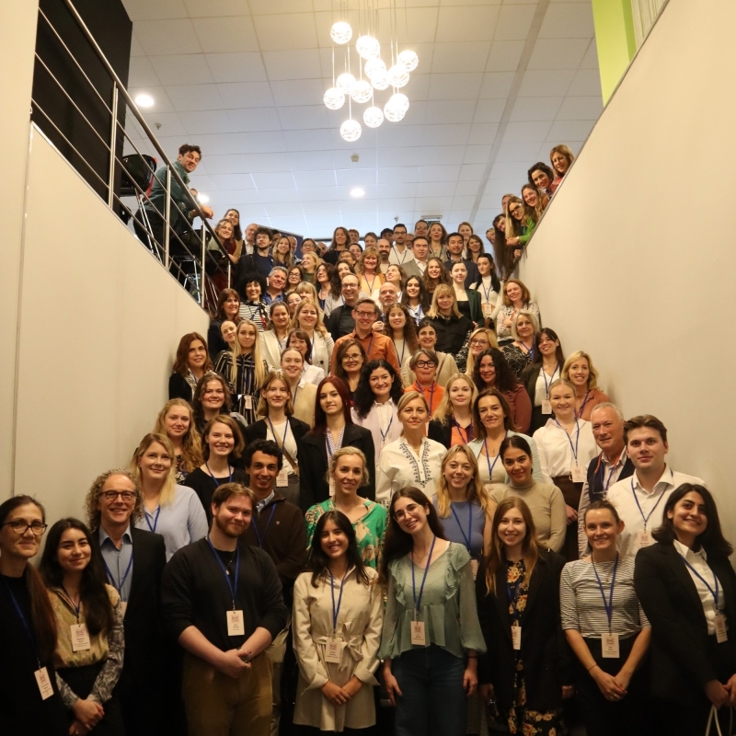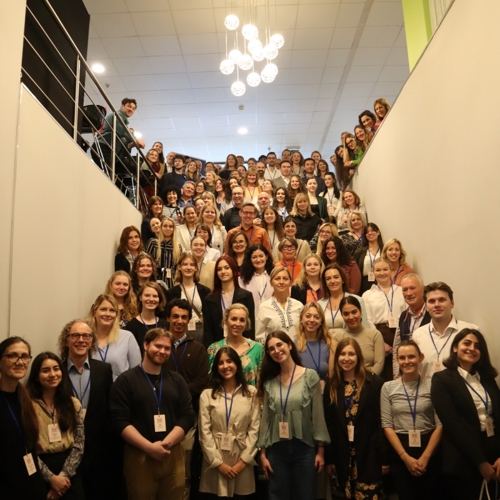CO-CREATE Final Conference
Article
|Published
The CO-CREATE Final Conference, co-hosted with WHO Europe, brought together all project partners and stakeholders to celebrate the achievements and impact of this joint project. 180 attendees from 49 countries joined the two day conference in October 2023, both online and in-person, where they heard about the journey policies with youth in health and beyond.
CO-CREATE’s Youth Taskforce were joined at the Conference by youth representatives of the International Youth Organisation, MOVENDI International, the International Federation of Medical Students Associations (IFMSA), Youth4Health Network, EuroHealthNet, WHO Youth Council, Biteback 2030 and the Youth Environmental Council of the Netherlands.
Systems thinking and youth engagement in policy development
CO-CREATE teams revealed new links between overweight and mental health among adolescents, using a novel systems dynamics model to analyse large survey databases of young people’s health behaviour. It showed no single intervention would be sufficient to tackle obesity. CO-CREATE has also designed and published the STAR framework protocol to help researchers design systems-based research projects.
Digital marketing: youth’s growing concern
Social media is deeply embedded in young people’s daily environment and self-promoted influencers can affect dietary behaviour and attitudes to overweight and obesity. CO-CREATE research shows social media can also affect mental health.
A discussion panel on ‘Digital marketing of unhealthy products and youth’ was kicked-off by presentations from Mr. Lubos Kuklis from DG Connect of the European Commission, and representatives of WHO Europe and The European Consumers’ Alliance (BEUC) followed by youth from Biteback 2030 and MOVENDI International.
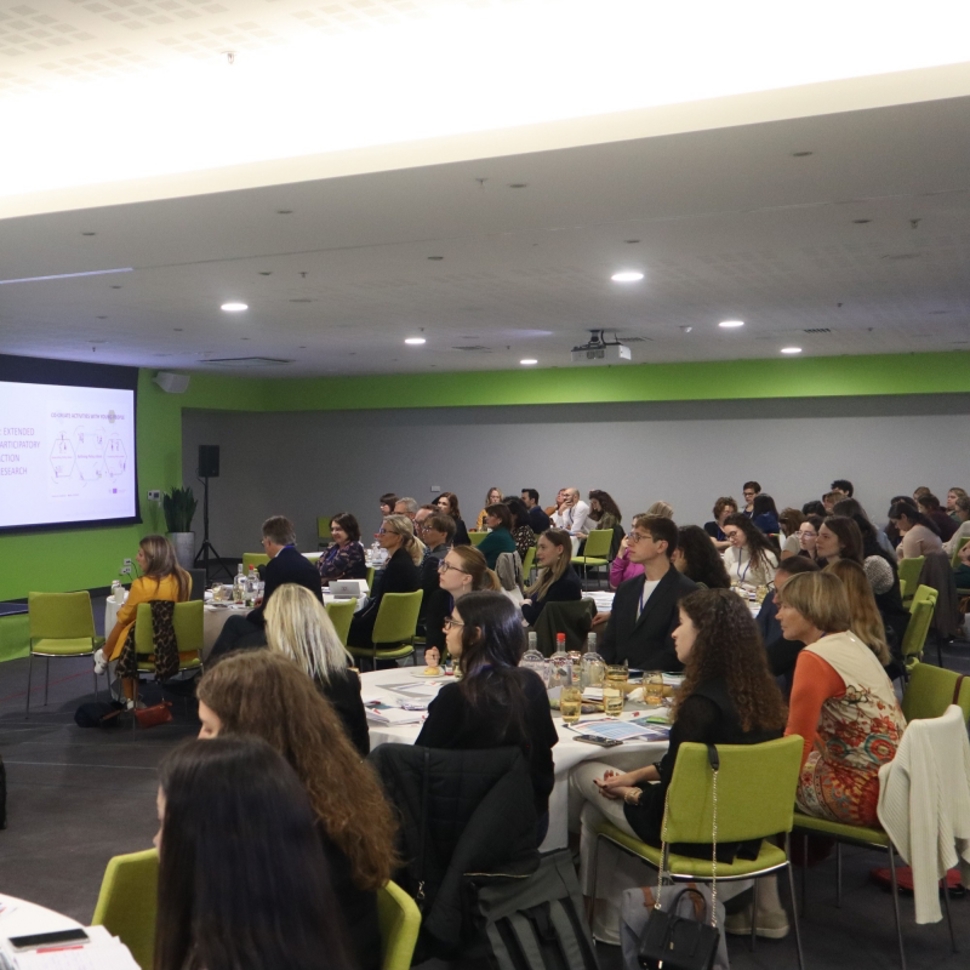
Bridging the dialogue divide between policy and youth
The CO-CREATE team workshopped the ‘Youth-Led Change: A Systems Thinking Activity Toolkit’ and the Dialogue Forum Tool which can be used by and with youth, to involve policymakers and other relevant stakeholders to connect, discuss and collaborate on an idea or initiative. It can be applied to any topic beyond public health!
The CO-CREATE Youth Task Force is urging researchers, policymakers and stakeholders to involve youth in a meaningful way. They invited youth organisations present at the Conference to sign the Youth Task Force’s Open letter to push for more youth involvement and youth empowerment across decision-making processes.
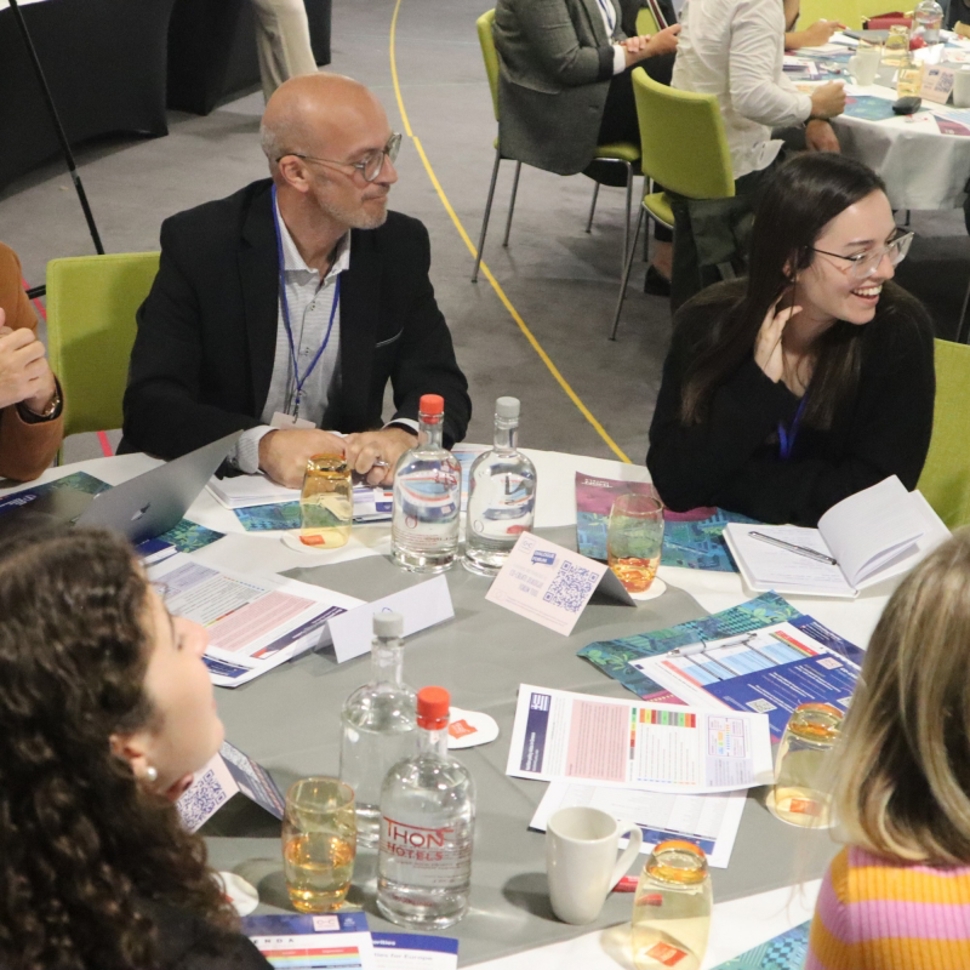
CO-CREATE’s innovative policy tools for evidence-based Advocacy
CO-CREATE has generated databases of physical activity and nutrition policies along with methods for benchmarking and indexing the policies. These CO-CREATE tools provide a means for independent assessment of progress, so that governments can be held accountable. At the Conference, participants utilised country snapshots to develop country-specific policy asks for physical activity and nutrition.
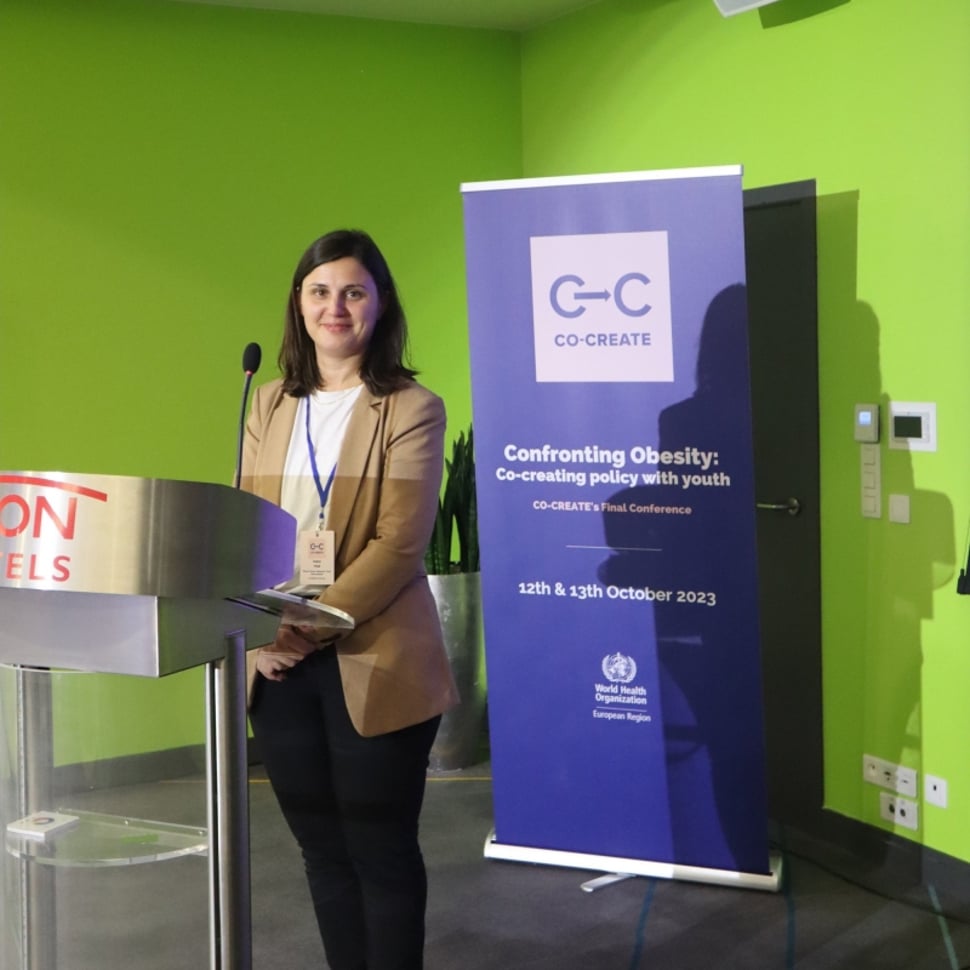
Key project outcomes
CO-CREATE successfully shows that young people:
- can meaningfully enter into extended collaboration and come up with policy proposals which are specific to their own experiences, and may challenge professionals’ assumptions.
- support structural policies based on making changes to systems and find this is preferable to policies that rely on individual lifestyle change.
- can work together with adults to explore attitudes and opinions on what needs to change. Activities need preparation and a high degree of flexibility, and the ability to renegotiate the aims as the project progresses. Participatory action needs to be structured and resourced (including financial support).
- support policies to increase the use of economic tools to address affordability of healthier foods, to ensure supply chains are coherent with health policies, and to support active transport and design neighbourhoods for safe and healthful physical activity.
- have the potential to act as powerful agents of change. The CO-CREATE project ran 15 Youth Alliances and 20 Dialogue Forums in which young people discussed their views and priorities with policy-makers, politicians, educators, health professionals, civil society groups and commercial operators.
